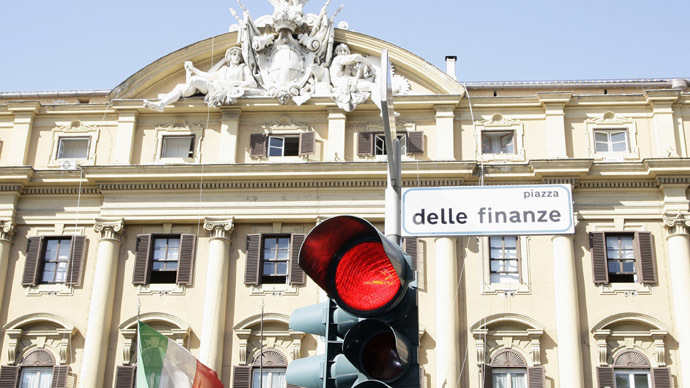‘Absolutely baseless’: Italian Treasury denies it could lose $10.4bn

The Italian treasury has denied reports in the Financial Times that Italy risked losing $10.4bn on derivatives contracts, and called the suggestion ‘absolutely baseless’.
The contracts were made in the late 1990s so Italy could meet the
criteria to join the euro currency.
They were restructured at the peak of euro zone crisis in 2012 with foreign banks in order to reduce
interest rates and currency risk.
The FT reported the Italian economy could suffer losses of up to
$10.4 billion on the derivatives, which were calculated based on
market prices on June 20.
Debt derivatives were used as a hedge against foreign exchange
and interest rate risks, they don’t pose the astronomical
financial threat reported by the media, the Treasury said.
Unease in the banking community ensued after the FT published its
report, and raised concerns Italy was sitting on a ticking $10.4
billion time bomb of derivative debt.
The estimates on the derivative contracts were sourced from
independent experts, and not the Italian treasury auditor itself,
Bloomberg reported.
The wave of panic provoked an official statement from the
treasury, as well as European Commission Bank President Mario
Draghi, who was the head of the Italian Treasury in the late
1990s, when the contracts were issued.
"The market value of derivative instruments at a specific
time... cannot in any case be treated as an actual loss," the
Treasury said.
In 2001, Draghi began work at Goldman Sachs, which was involved
in derivative contracts in Greece, but Draghi denies any
connection. The government admitted in March 2012 it had paid
U.S. investment bank Morgan Stanley 2.57 billion euros to close
derivatives contracts from 1994.
"Many mistakes were made during the 1990s to get Italy into
the euro and today those are turning into more debt, hidden in
the official accounts," La Repubblica published an anonymous
government official as saying.
The panic was in part fueled by the ECB’s pledge to buy the bonds
of countries in distress, which spread fear the banks may no
longer be liquid.
Short-term debt costs doubled on the expectation the US Federal
Reserve would curb its monetary stimulus.
Italy’s borrowing costs rose at a sale of 8 billion euros ($10.4
billion), which is the highest since February 26th. It plans to
auction off 5 billion in 5 and 10 year bonds tomorrow.
The ECB’s monetary policy “will stay accommodative for the
foreseeable future,” Draghi said in a speech today at the
French National Assembly in Paris. “We have an open mind about
all other possible instruments that we may consider proper to
adopt,” and added an exit remains far off.
Italy has been hit hard by the euro crisis, and further
complicated by political uncertainty and scandal. Italy’s overall debt is 2 trillion
euros.














